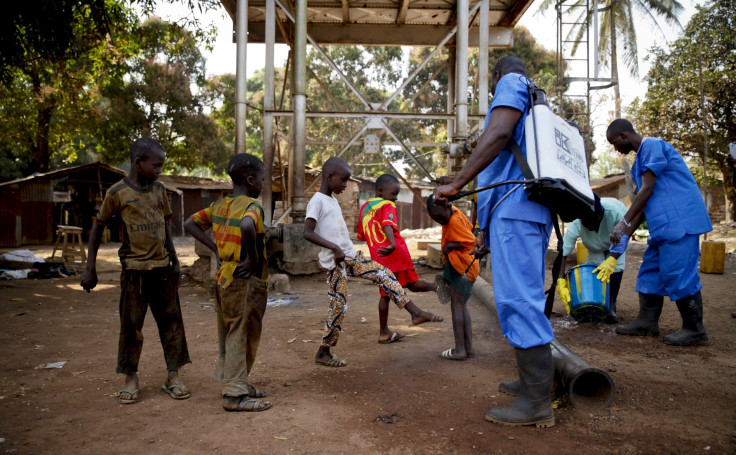Ebola Not Over For Guinea, Sierra Leone As Countries See Spike In New Cases For Second Week

Ebola cases spiked in Guinea and Sierra Leone for the second week in a row, according to the World Health Organization’s latest figures. The unexpected rise in cases has marked a turning point in the effort to snuff out the West Africa Ebola outbreak that has killed thousands since late-2014. Despite recent encouraging news that the deadly epidemic was nearly over, the new cases show some countries are still struggling to end the outbreak once and for all.
Health officials reported Wednesday 16 new cases in Guinea and 15 new cases in Sierra Leone for the week ending June 7. The previous week saw 13 new cases in Guinea and 12 new cases in Sierra Leone, a rise from just three new cases the week before. Liberia was declared Ebola-free in May.
“It feels like we are back to square one,” a spokesman for the aid group International Medical Corps said last month in response to that month’s rise in Ebola cases. “The world has moved on, but it is still a very real problem here. With Liberia Ebola free, we thought we were not far behind, but that isn’t the case.”
The Ebola outbreak has killed more than 11,100 people across West Africa. The total number of infected as of June 7 was 27,237, according to WHO. Liberia was the hardest hit country, accounting for nearly half of all Ebola deaths.
Despite the new cases, Sierra Leone’s leaders have said they’re optimistic about its economic recovery in what they see as the final days of Ebola. The country has struggled to lure businesses into investing in Sierra Leone’s diamond and mineral industries in recent months. Nearly 180,000 people in Sierra Leone are said to have lost their jobs because of the Ebola crisis, according to World Bank estimates.
“We were just beginning to develop a good environment after the war shattered us — coming to integrate society, develop business and infrastructure — and now Ebola has taken us back again,” foreign minister of Sierra Leone Samura Kamara told the Financial Times in February.
© Copyright IBTimes 2025. All rights reserved.






















